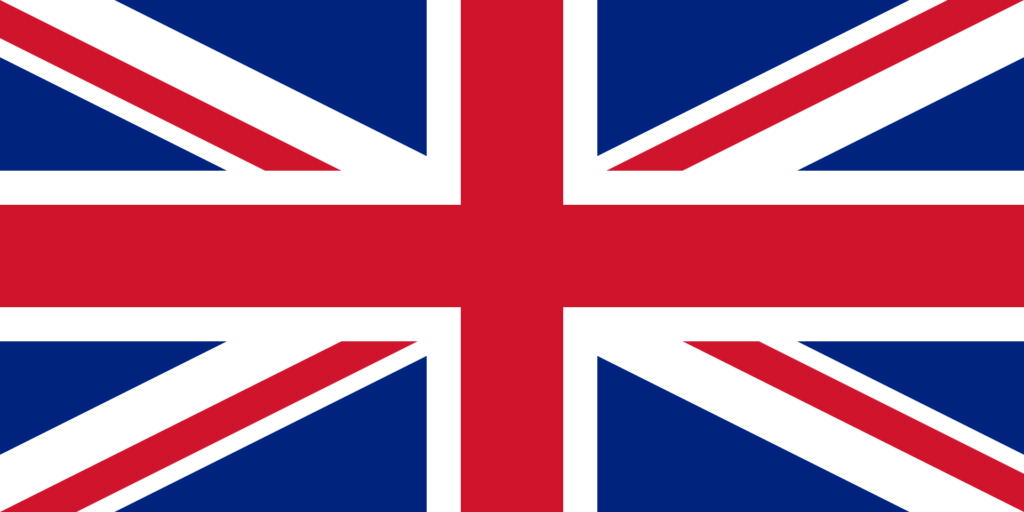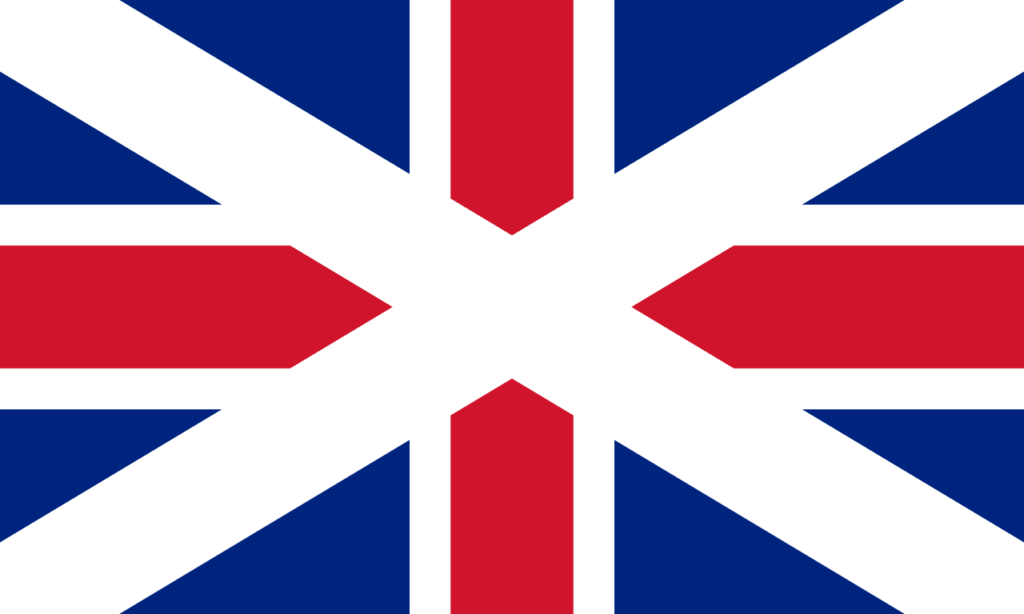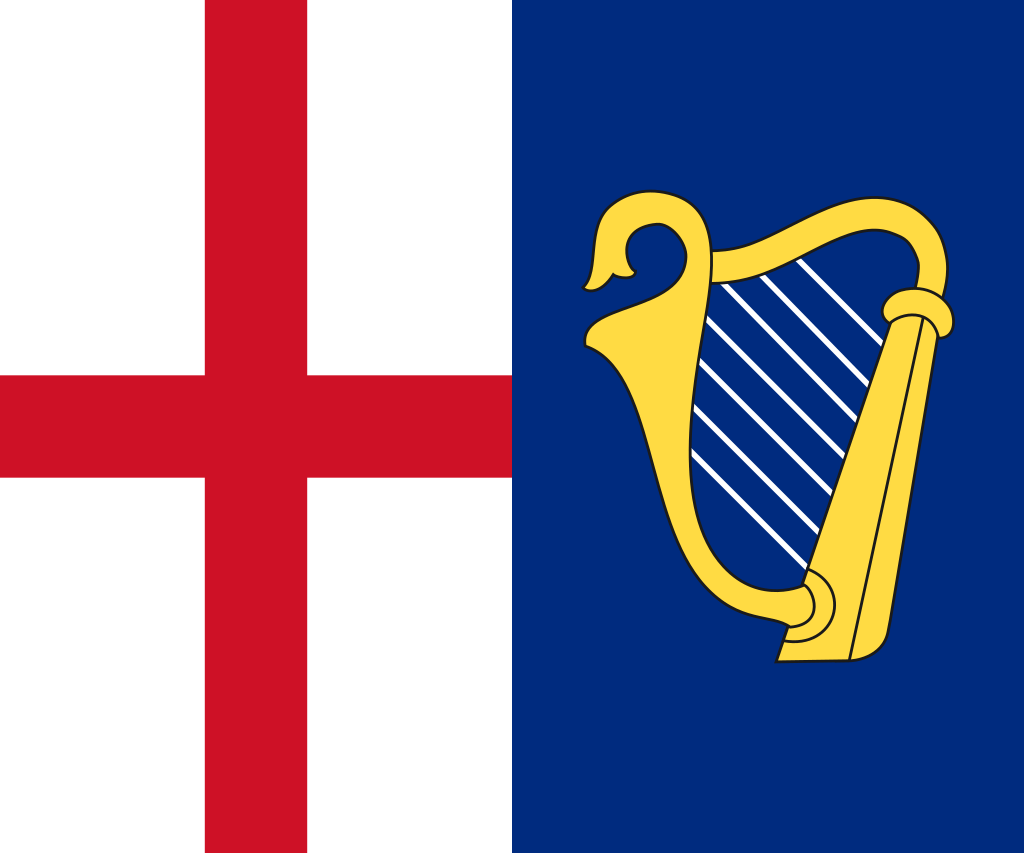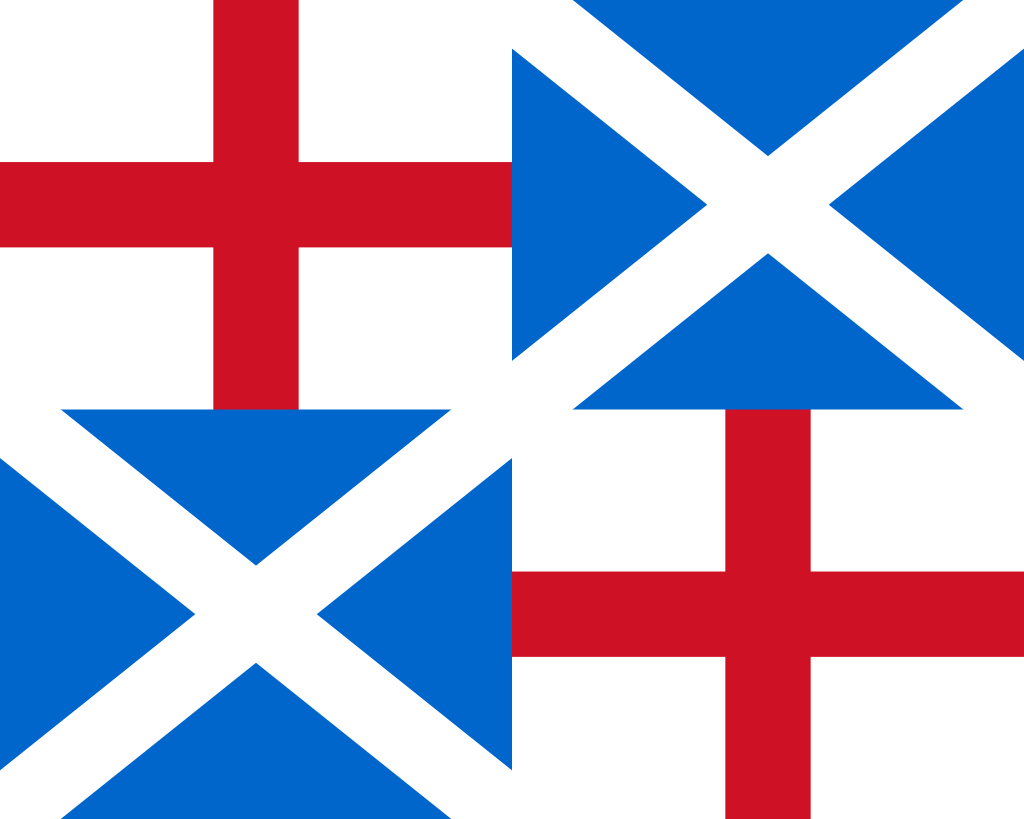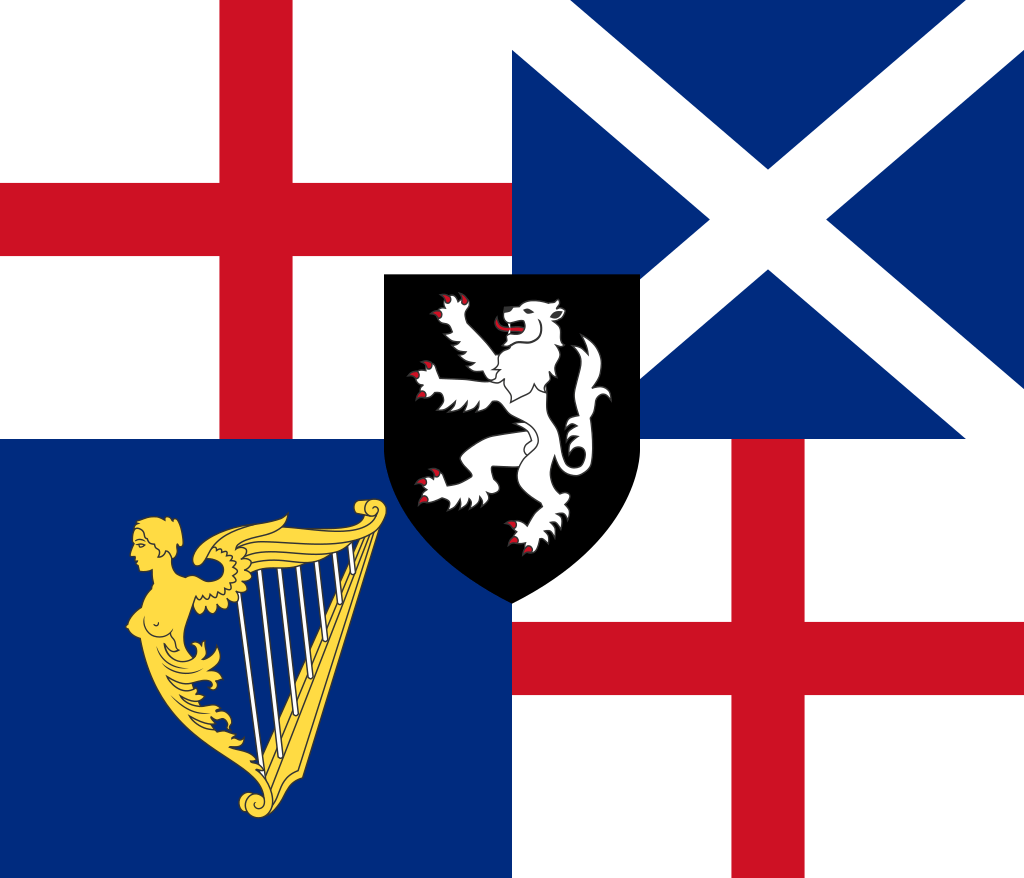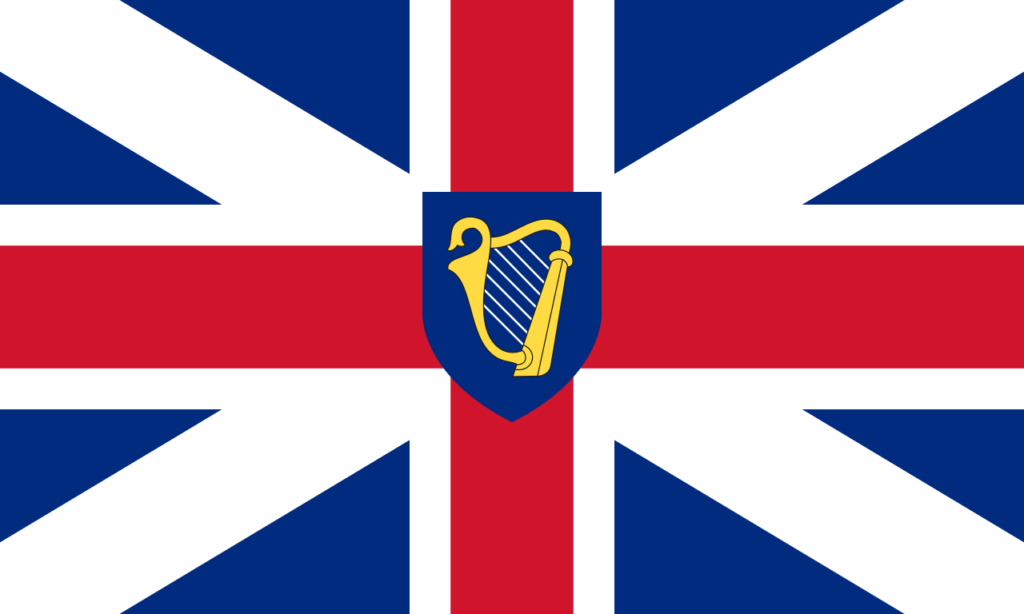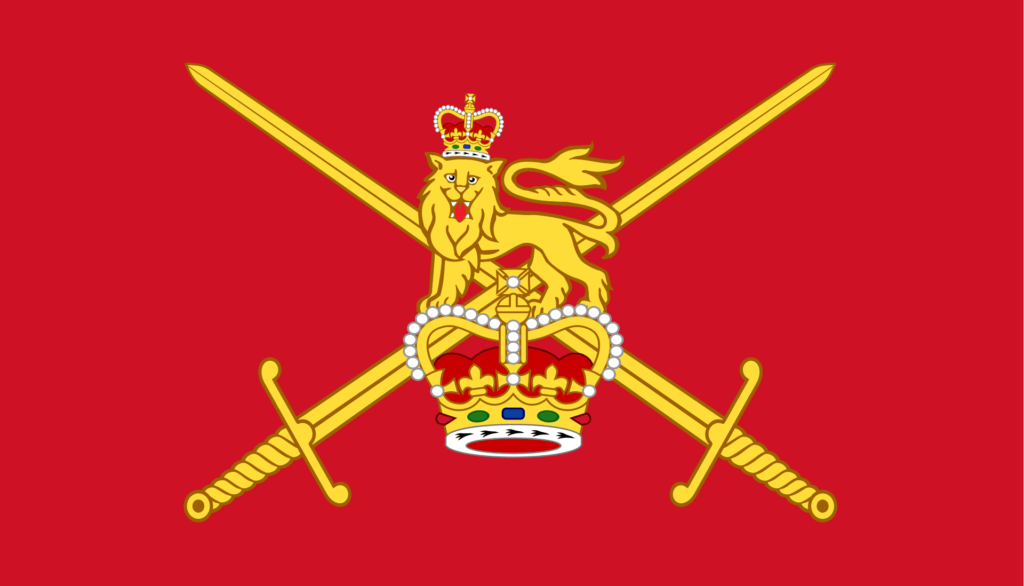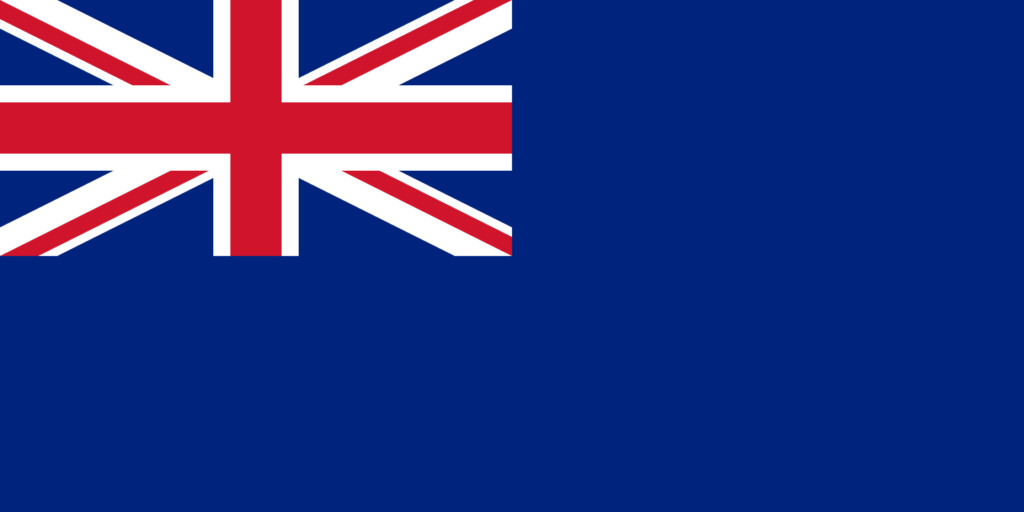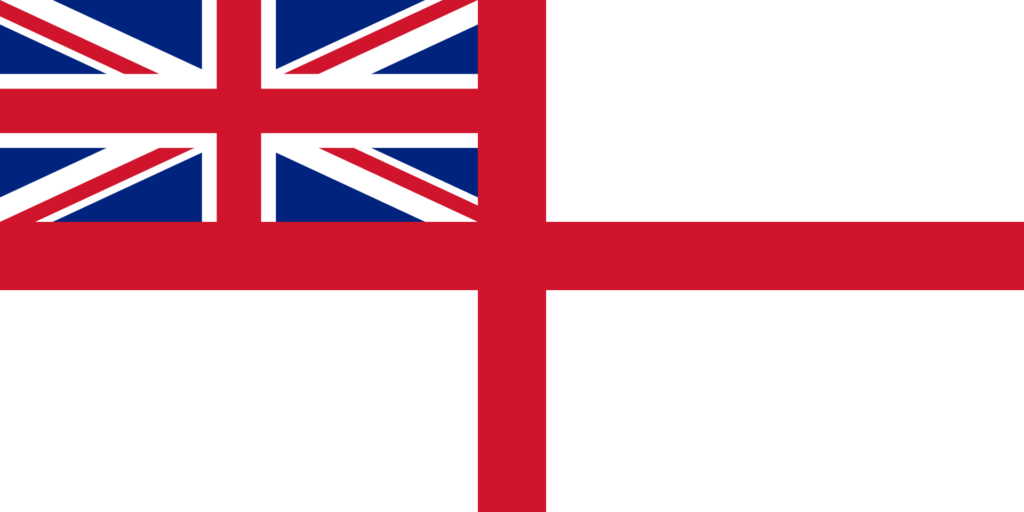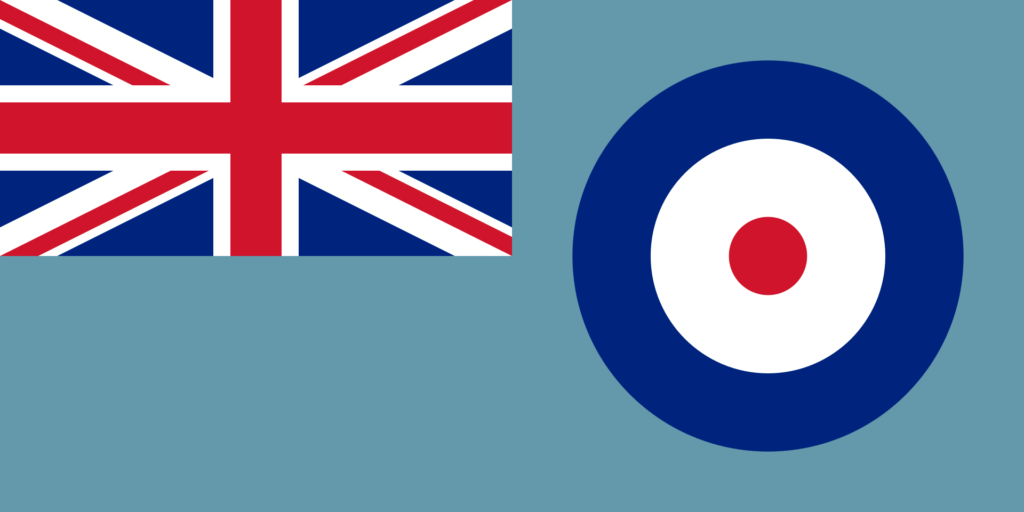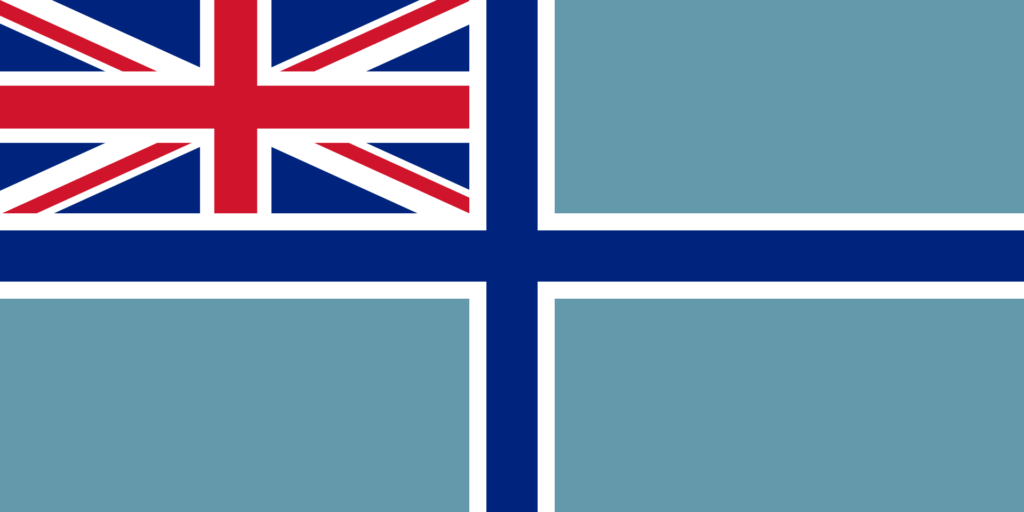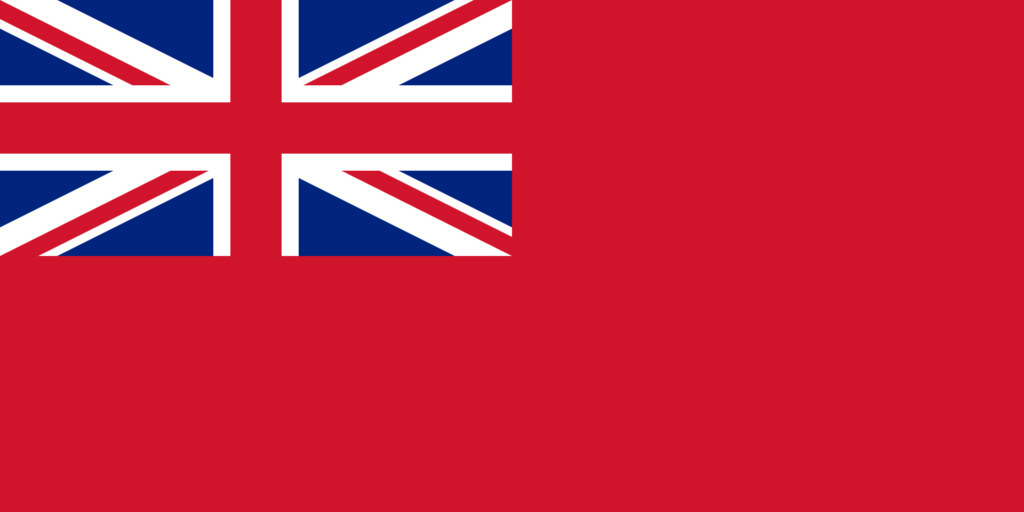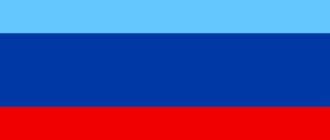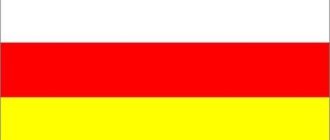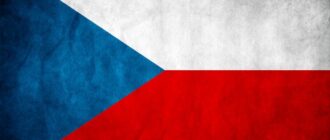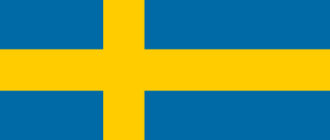Enough recognizable municipal sign of the United Kingdom of England and Northern Ireland possesses enough employment history and no less exciting meaning.
So the modern flag of England looks:
History flags of England
The history of the flag of England begins with the climbing into the English throne of the Scottish King Yakov VI in 1603. England he ruled under the name of Yakov I.
The flag design that would symbolize the Alliance of 2 countries, was approved on April 12, 1606. and was a combination of flags of both states: on top of the Scottish sign of St. Andrew, a British symbolism was imposed in the form of a holy jore cross.
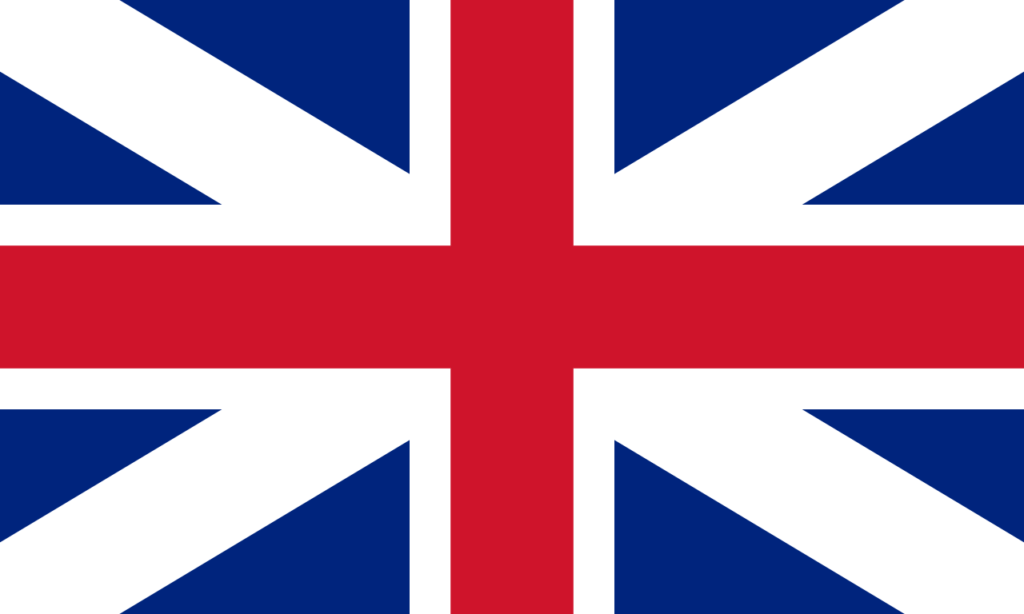
- 1st flag of the British Commonwealth in 1649-1651
- 2nd flag of the English Commonwealth in 1651-1658
- Oliver Cromwell’s Standard in 1653-1659
- 2nd flag of the Commonwealth of Great Britain, Scotland, and Ireland from 1658 to 1660
The flag was used mainly on the ships of commercial and military destinations, but from May 5, 1634. It began to have only on the nose of combat vessels. From this, his name “Union Jack” went from this, where the Jack in the British testimony testifies the “Nasal Flag of the Military Ship”.
The word “Union”, which is translated as “Alliance”, began to be used as the designation of the British flag in 1625, and later united with the word “jack”.
According to the results of the adoption of an act of Unia in 1707, the unification of both states in the United Kingdom of Great Britain, and ultimately connecting the flags of 2 countries the symbol began to personify the new country.
In 1801, an act of accession to Great Britain Ireland, In the investigation of her emblem, not counting this was added to the existing type of flag. Directly the flag has reached this time.
Description
The canvas that combines the flags of 3 states has an aspect ratio of 1 to 2 for the government and 3 to 5 for the army and fleet. On a blue background, there is a red straight cross with white edging, superimposed on top of diagonal red and white crosses.
The diagonal Red Cross is not pretty shifted to the side. This placement of the Saint Patrick sign relative to the sign of St. Andrew deprives the symmetry flag. The displacement is completed so that none of the diagonal crosses occupy a dominant position.
The design was not changed at the end of receipt Ireland Independence in the XX century for the reason that the UK remains Northern Ireland, For the symbolism of which the Cross of St. Patrick also belongs.
Colors flag of England
At least the color present on the UK flag has been concluded certain and meaning:
- White – personifies the world and honesty;
- Red – the Meaning of durability, courage, strength, and courage;
- Blue – denotes loyalty and truth, and persistence and justice.
Symbolism value
The United Kingdom flag symbolizes the Union of various regions, various among themselves:
- Straight Red Cross – the emblem of the Christian righteous Johor, which is patronized by the UK;
- Diagonal White Cross on a blue background – Symbol of Scotland, personifying the crucifixion of the Apostle Andrei. This sign connects between Constantinople and Orthodox Church;
- Diagonal Red Cross – St. Patricks Sign, Patron Ireland. But many historians earlier will not be able to come together in opinions regarding its origin, and some Irish nationalists and absolutely do not recognize it. Not believing this in coordination with the laws of the church, the Holy Patrick has no right to a personal cross, due to the fact that there is no martyr.
No symbols of Wales are perceived as discrimination and are a pretext for cyclical appeals to add red and transformation of the dragon design.
Already within a long time, the United Kingdom’s flag has the most famous sign that causes the unity of benign from each other of the state.
Other flags:
- Flag of land armies
- Flag of government court
- Flag of the Royal Navy
- Flag of Royal Air Force
- Flag of civil aviation
- Flag of civil courts
Non-specialized information about the United Kingdom
| Official language | English |
| Capital | London |
| Territory | 133 396 km2 |
| Population | 55 977,000 people |
| Currency | GBP |
| Telephone code | +44 |
